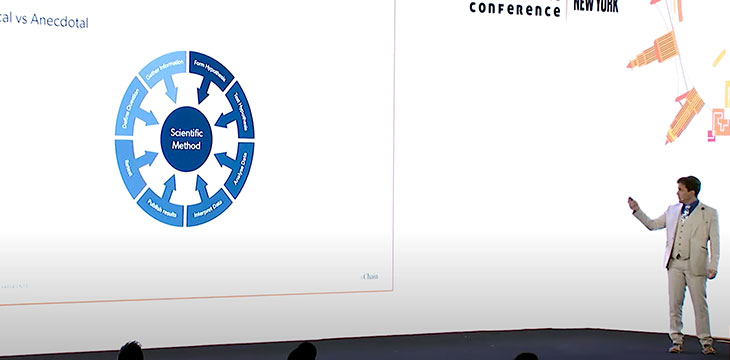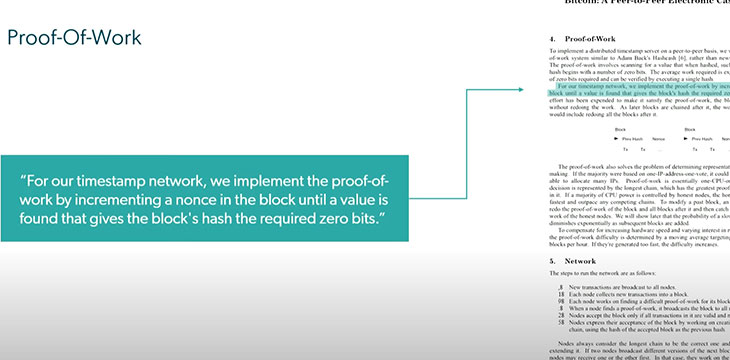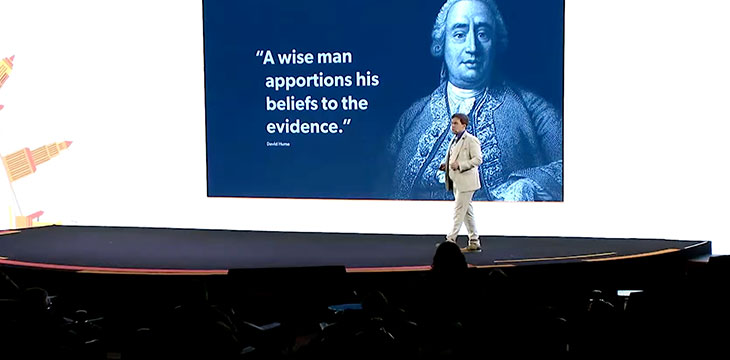“Time is a personal experience.” That was the title of nChain Chief Scientist Dr. Craig Wright’s keynote speech at the CoinGeek Conference in New York. Sounds like a philosophical, even theological presentation, right?
“We are going to start thinking about time. If we are going to put evidence down, that is what evidence is. Not ‘I have signed a bloody key.’ And I’m going to—bit by bit—get this through people’s thick fucking skulls,” Dr. Wright said.
Well.
For everyone new to all of this: Dr. Craig Wright is on his way proving in court to be the person behind the famous pseudonym Satoshi Nakamoto.
“I get to spend a little bit of time in court, it is not a fun process. But what do I do? I have to show evidence over time. I don’t sit there going ‘Hey, I’ve got a key!’ because anyone can copy a key (…). Time matters. How do you prove things? Time,” Dr. Wright said in his keynote speech.
This year’s CoinGeek conference in New York was not the first occasion Dr. Wright mentioned time in detail concerning Bitcoin. As can be read in his article “Money is Time and Energy,” money is described as a means of mapping obligations, a way of sending obligations through time—while Bitcoin is an ordering and timestamp system that allows for the creation of efficient and effective digital cash.
Craig Wright knows about time—even going back thousands of years. One of Wright’s dissertations is titled “Gnarled roots of a creation mythos,” in which he examined the shared mythological origin between different religions.


In his latest keynote speech, Dr. Wright explains how individuals perceive time in Bitcoin, which seems simple: it is what Bitcoin nodes and individuals in Bitcoin experience and have evidence of.
“Nodes verify what they see on the network,” Dr. Wright said, pointing out that nodes record time and do not have to rely on what other entities tell them. Bitcoin and all information exchanges in it are not anecdotal, but empirical. According to Dr. Wright, Bitcoin is a reputation system if built and used correctly over time.
In the presentation, he also points out that identity is not having access to a Bitcoin key, but identity exists outside of Bitcoin—being built by one’s own history, events, proof of work, relationships and more.
Dr. Wright emphasizes the importance of the scientific method which should be used as a testable process in science, in court and in the world in general.
“Is it real or not? Can we test whether it happened? Is it there? Is it something that I can personally experience?” Dr. Wright said.


Bitcoin is driven by proof-of-work, which means that nodes are spending their money and putting things at risk to do a job, according to Dr. Wright. Proof-of-work is a signal to other nodes.
“I’ve spent a shitload of money, therefore I am not going to cheat. Why? Because as a miner, I’ve just invested $500 million in all these data center facility contracts,” Dr. Wright said.
He also points out how easy it is to find major miners, as it does not take much effort to locate their expensive hardware equipment around the world. Proof-of-work means nodes are not anonymous in Bitcoin.


“It’s about time” is the slogan of the CoinGeek conference in New York. It really is about time—especially this time. It is about time the world acknowledges who Satoshi Nakamoto is and what it means for Bitcoin.
Read Dr. Wright’s article “The wheel of time is not on an axis” on his personal website:
“The failure in understanding change lies in believing that the wheel of time is on a stationary axle. We move forward as the wheel does,” Dr. Wright wrote.
Pay close attention to Dr. Wright’s personal journey and background, with all its setbacks and accomplishments.
“As all of you are going to start finding out as I go to court—I own my history. I am no longer embarrassed about any of it. It is all going to come out,” Dr. Wright closed his keynote speech.
Watch CoinGeek New York 2021 Day 1 here:
Source: Read Full Article

